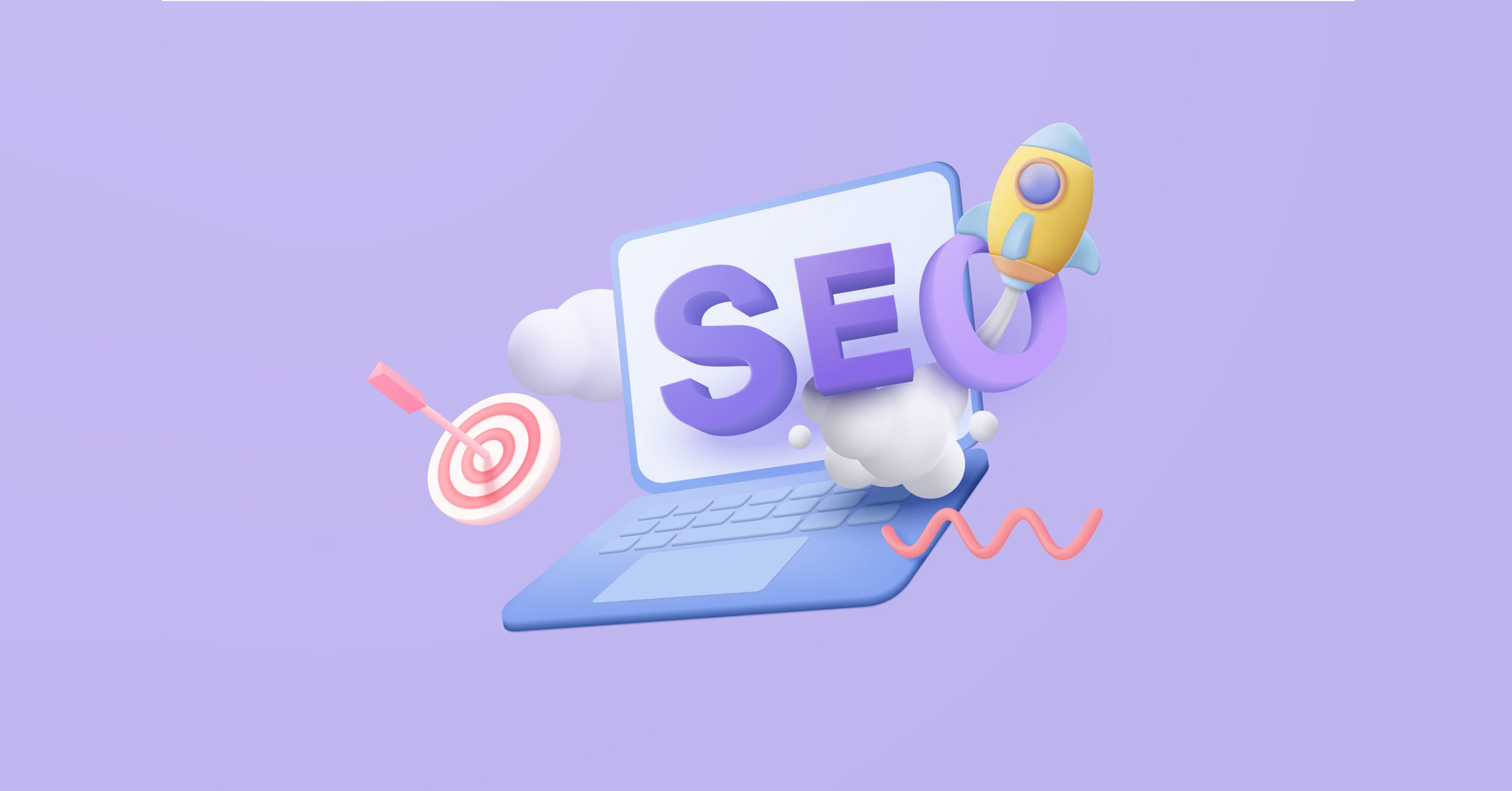Search Engine Optimisation has become crucial for businesses to survive or thrive. From small, family-run corner shops to medium-sized enterprises, every company operates in a dog-eat-dog world when it comes to online visibility. Therefore, if you’re considering SEO for your business but are still unsure of its true value, we will guide you through the benefits of SEO and explain why it should be a key part of your overall business and marketing strategies.
What is SEO?
First things first – SEO stands for search engine optimisation. It’s the process of elevating your website’s visibility on search engines through a series of changes to both your website’s content and technical infrastructure. Unlike ads, SEO deals with unpaid traffic – or organic results – by ensuring your website and web pages rank high in search engine results for relevant keywords and phrases.
SEO encompasses multiple strategies, including:
- On-page SEO: As you can probably guess from the name, this encompasses everything related to web page content, such as optimising written content, meta tags, and headlines to make the page more relevant to search queries.
- Off-page SEO: This refers to unpaid efforts and actions taken outside your website to improve your rankings. Building backlinks, engaging on social media, and enhancing the site’s authority from external sources are all examples of off-page SEO techniques.
- Technical SEO: This is the process of ensuring that your website’s back end or architecture is up to scratch and meets search engines’ rigorous standards. Technical SEO methods include ensuring your website runs efficiently, loads quickly, is mobile-friendly, and can be easily crawled and indexed by search engines.
Why does SEO focus on Google and Microsoft Bing?
While other search engines are important, it’s safe to say that Google is the king of the hill, especially as it has approximately 83% of the global search engine market.
Since Google is currently at the top (and has been for years), your safest bet when it comes to your SEO strategy is to focus on what Google prefers and to keep up to date with any updates and changes to its algorithm.
One thing to keep in mind is that Google aims to deliver relevant results as quickly as possible. Therefore, you need to consider user intent and how Google would interpret this when devising your overarching SEO strategy.
Another big player in the SEO market is Microsoft Bing, which, in January 2024, occupied 10.51% of the desktop search engine market share, making it the second-most popular search engine out there… and this percentage is increasing year on year.
Therefore, while many focus solely on Google, Bing shouldn’t be ignored, since if you manage to secure high rankings on Bing SERPs, you can still reap the benefits of SEO. What’s more, with its AI-powered, chatbot-style interface – Microsoft Copilot – which launched before Google’s AI efforts, the search engine has managed to position itself front and centre when it comes to AI-assisted search engines.
So what makes Bing SEO different from, say, Google’s? It prides itself on a dynamic ranking algorithm. According to Frédéric Dubut, former principal PM manager, search ranking and personalisation at Microsoft: “The model is changing all the time, so you get new data from the web, you get new user behaviours; even the same query doesn’t mean the same thing in 2019 as it does in 2021.
“The model is learning all the time, and so what it’s doing is taking into account all these different factors . . . and it’s combining all of them and it’s trying to see what are the signals that are the most predictive of relevance. That changes all the time, and the weights that it’s putting on all of these factors are also changing all the time.”
Therefore, with Bing, it’s important to give equal weight and effort to all different SEO criteria (which we cover extensively in this article). Additionally, to ensure that your website appears on Bing SERPs, you can submit your URLs to Bing directly.
Why is SEO important for businesses?
SEO isn’t just about getting traffic to your website – it’s about attracting the right kind of traffic. When done effectively, SEO can position your business in front of potential customers actively searching for the exact products or services you offer.
Visibility and branding
Nowadays, the majority of consumers begin their shopping journey online by browsing for information and products. This means that ranking high in search results causes your brand to immediately pop up for users, almost guaranteeing that your website will be a top choice when customers are making their decisions. A higher ranking also fosters trust, as users tend to view top results as more credible.
Cost-effective marketing
From a financial perspective, SEO is one of the most cost-efficient digital marketing strategies, as it deals with long-term organic traffic. Unlike paid advertising, organic search traffic doesn’t require ongoing payments for every click. Once your website is optimised and begins ranking well, you can easily reap the benefits for an extended period without having to scramble for short-term paid traffic.
High-quality traffic
One of the biggest benefits of SEO is that it helps you build a quality audience actively looking for what you offer, making it more likely that they’ll convert. These users are further along in the buyer’s journey than, say, the people you’re targeting via social media ads. Therefore, they’re more likely to engage with your website, make a purchase, or inquire about services.
Competitive edge
In today’s crowded marketplace, as cliché as it is, finding ways to make yourself stand out is crucial – and can literally make or break your business. Businesses that invest in SEO have consistently proven to outrank their competitors, particularly if their competitors haven’t optimised their sites yet. Conversely, if your competitors are already way ahead in the SEO game and you aren’t, you’re likely losing out on valuable online traffic, and with that, sales.
Which types of businesses can benefit from SEO?
While SEO is broadly applicable, it’s especially beneficial for certain types of businesses.
Local businesses
Local SEO helps businesses target customers in a specific geographic location, which is absolutely vital for companies strictly linked to a particular area. With strategies like Google Business Profile optimisation and localised keyword usage, local businesses can rank for searches like “vegan restaurant near me” or “best coffee in [city].”
E-commerce stores
If your business is solely online, SEO is a must, as it can help drive traffic to product pages and other webpages within your website, such as a blog post about something that potential customers are looking for. Best of all, it can attract these individuals at the exact moment they’re searching for what you offer.
B2B companies
Business-to-business (B2B) companies often have longer sales cycles, meaning their potential clients have to do a lot of research and go through several internal processes before making a purchasing decision. This means that with the right SEO strategy, B2B companies can capture leads at the early stages of the buying process and be in contention right from the get-go.
Service providers
While service providers typically rely on word of mouth, they too can benefit from SEO, especially in industries that are harder to infiltrate or have a lot of competition. Usually customers will seek out information or consult reviews before opting for a specific beautician, hairdresser, plumber, lawyer, and so on. By ranking high in search results and having a good online reputation, these businesses can establish trust and authority, ultimately generating high-quality leads.
So, what are the key benefits of SEO for businesses?
We’ve already emphasised that SEO can do wonders for organic traffic. However, what other benefits are there to investing in an SEO strategy?
Improved user experience
It’s important to remember that SEO isn’t just about search engines; it’s also about improving the experience for your users. Techniques like boosting page load speeds, ensuring mobile-friendliness, and creating easy-to-navigate websites are all beneficial for search engines – however, they also make your website more attractive to visitors, encouraging them to stay longer, engage more with your content, and return.
Better ROI
Not only does SEO provide more long-term results; it also has one of the best returns on investment compared to other marketing strategies. This is simply because you’re targeting people who are already interested in purchasing or using the product or service that you’re offering.
Rather than having to convince them that they need your category of product (e.g., that they need to buy a jacket), you just need to persuade them that the jacket you’re selling is better than your competitors’.
Higher conversion rates
Since SEO targets users who are already searching for a specific product or service, the traffic generated tends to convert better than traffic from other sources. So, whether your goal is for users to make a purchase, sign up for a newsletter, or request a quote, SEO helps entice an audience with a higher intent to act.
Building brand authority
SEO can also help establish you and your brand as leaders in your field. By consistently showing up on page one and delivering quality content, you gain the trust of not only search engines but also your customers and competitors.
The Bottom Line
In a world where nearly every customer begins their buying journey online, SEO is crucial for the success of businesses of all categories and sizes. Improving your search engine rankings is a surefire way to generate long-lasting results – all the while increasing traffic, attracting more qualified leads, and building your brand authority.
Implementing a tailor-made SEO strategy takes time and expertise – which is where LOCALiQ comes in. So, contact us today if you’re ready to take a deep dive into SEO and give it your best shot.





